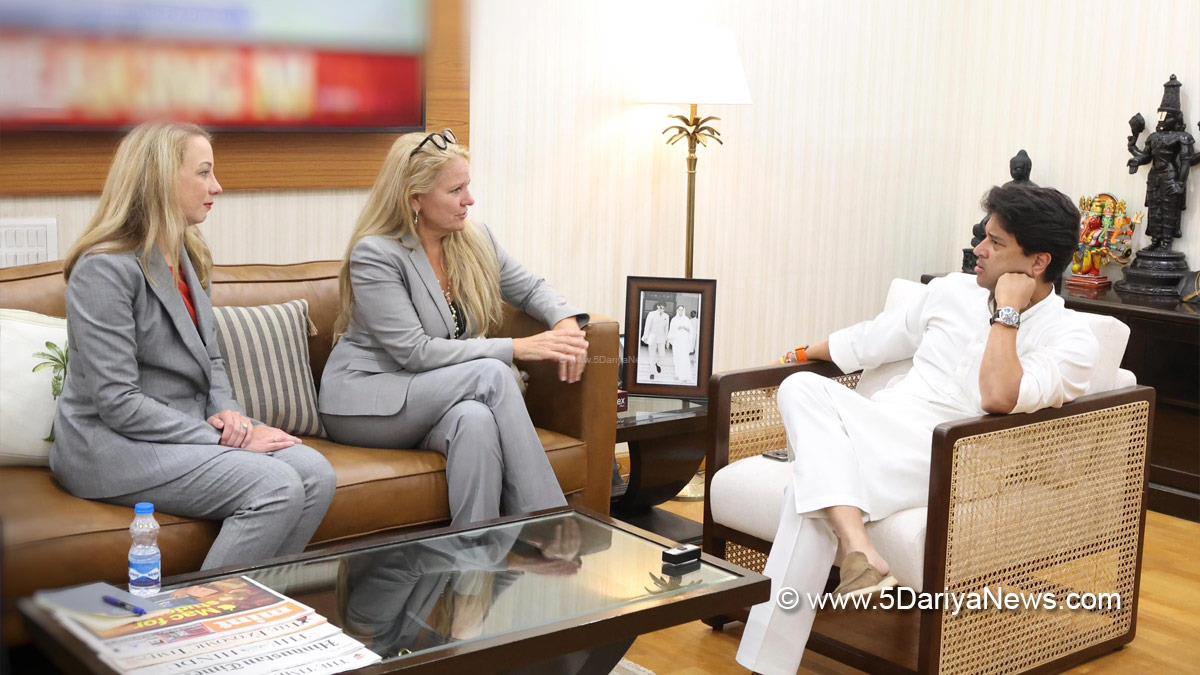SpaceX chief appreciates license granted to Starlink in India : Jyotiraditya Scindia

Union Communications minister Jyotiraditya Scindia has said that he held a “productive meeting” with Gwynne Shotwell, president and chief operating officer of Elon Musk-owned SpaceX, who appreciated the license granted to the affordable satellite internet service Starlink in the country.
Starlink provides high-speed internet access to remote locations using low Earth orbit satellites. “Had a productive meeting with @Gwynne_Shotwell, President & COO of @SpaceX, on India’s next frontier in connectivity.
We delved into opportunities for collaboration in satellite communications to power Digital India’s soaring ambitions and empower every citizen across the country,” the minister said in a post on X social media platform.
With India’s digital revolution under the leadership of Prime Minister Narendra Modi, satellite technologies are not just relevant, they’re transformative.“Shotwell appreciated the license granted to Starlink, calling it a great start to the journey,” Scindia added.
Earlier this month, Starlink finally received a satcom licence in India to offer its commercial services, possibly later this year or early next year. According to reliable sources, the Department of Telecommunications (DoT) issued the Global Mobile Personal Communication by Satellite (GMPCS) permit to the US company.
The trial spectrum is also set to be issued to Starlink in coming days, as the company has fulfilled all security compliance requirements outlined in its letter of intent (LoI). Starlink is now the third satcom company to get a GMPCS permit after Eutelsat’s OneWeb and Jio-SES to provide services in the country.
Starlink now needs approval from the Indian National Space Promotion and Authorisation Centre (IN-SPACe), and has already submitted necessary documents, before the spectrum is allocated to the satellite-based internet service.
The initial DoT approval was granted after Starlink agreed to comply with the new national security guidelines for satcom operators. The Department had announced 29 additional requirements, including mandatory interception and monitoring mechanisms, use of local data centres, location tracking for mobile user terminals, localisation mandates, among others, for existing and potential satcom licensees.

Comments are closed.